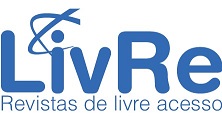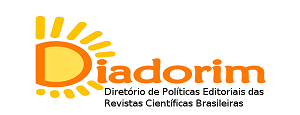THE METHODOLOGICAL WAYS OF PARTICIPATING MIXED RESEARCH: Applied to the Brazilian recycling production network
Aplicados a rede de produção da reciclagem brasileira
DOI:
https://doi.org/10.20873/rtg.v9n17p139-153Keywords:
Scientific, Qualitative, Quantitative MethodologyAbstract
The methodology is the analysis of the way in which the investigation of a research was carried out in order to achieve a given result or answer to a question. However, there are several and controversial aspects to be considered when talking about methods, since there will always be a strong influence of the object of study and the result that is intended to be achieved. Thus, this article seeks to present the methodological path for conducting research on the organization of recycling production networks in the state of Rio de Janeiro. The methodology to be analyzed, and which was used in the research on the reality of the Brazilian recycling production network, is the mixed participant, which is a combination of qualitative and quantitative methods, in addition to having the direct participation of the researcher. Therefore, this work sought to exemplify the use of a participatory mixed research methodology to better understand the universe and the reality of the recycling production network in Brazil, more specifically, in Rio de Janeiro. It was concluded, therefore, that the use of a mixed participatory methodology can be essentially effective when dealing with social issues, since analyzing qualitatively questions and data quantitatively ends up making the results more complete, given the very subjective particularities of the research of nature Social.
References
ALENTEJANO, P. R. R.; ROCHA-LEÂO, O. M. Trabalho de Campo: uma ferramenta essencial para os geógrafos ou um instrumento banalizado? Boletim Paulista de Geografia, v. 84, p. 51-68, 2006.
BORGES, M. C. Da observação participante à participação observante: uma experiência de pesquisa qualitativa. In. PESSOA, V. L. S.; RAMIRES, J. C. L. (Org.). Geografia e Pesquisa Qualitativa: nas trilhas da investigação. Uberlândia: Assis, 2009.
BOSI, A. P. A organização capitalista do trabalho “informal”: O caso dos Catadores de Recicláveis. Revista Brasileira de Ciências Sociais. Brasil, v. 23, n. 67, p. 101-116, 2008.
BURGOS, R. Periferias Urbanas da Metrópole de São Paulo: Territórios da base da indústria da reciclagem urbana periférica. 357f. Tese (Doutorado em Geografia) – Departamento de Geografia, Universidade de São Paulo, São Paulo, 2008.
DAGNINO, R. S.; DAGNINO, R. P. Políticas para Inclusão Social dos Catadores de Materiais Recicláveis. Revista Pegada Especial, p. 65-93, 2010.
DAMÁSIO, J. (coord.) - Diagnóstico Econômico dos Catadores de Materiais Recicláveis na Região Metropolitana do Rio de Janeiro. [s.l.].:UFBA. Pangea, Fundação Banco do Brasil, Petrobrás, 2009.
DEMO, P. Pesquisa qualitativa: em busca de equilíbrio entre forma e conteúdo. Revista Latino-Americana de Enfermagem, Ribeirão Preto, v. 6, n. 2, p. 89-104, abr. 1998.
GOLDENBERG, M. A arte de pesquisar: como fazer pesquisa qualitativa em ciências sociais. 8ª ed. – Rio de Janeiro: Record, 2004.
KAISER, R. A implicação: um novo sedimento a se explorar na Geografia? Boletim Paulista de Geografia. Brasil, v. 84, p. 25-50, 2006.
LACOSTE, Y. A pesquisa e o trabalho de campo: um problema político para os pesquisadores, estudantes e cidadãos. Boletim Paulista de Geografia. Brasil, v. 84, p. 77-92, 2006.
MINAYO, M. C. S. Ciência, técnica e arte: o desafio da pesquisa social. In: MINAYO, M. C. S. (Org.). Pesquisa social: teoria, método e criatividade. Petrópolis, RJ: Vozes, 2001.
PORTO-GONÇALVES, C. W. A Globalização da Natureza e a Natureza da Globalização. Rio de Janeiro: Civilização Brasileira, 2006.
RAMIRES, J. C. L.; PESSÔA, V. L. S. (Org.). Geografia e pesquisa qualitativa: nas trilhas da investigação. Uberlândia: Assis, 2009.
RAMIRES, J. C. L.; PESSÔA, V. L. S. Pesquisas qualitativas: referências para pesquisa em geografia. In: MARAFON, G. J. (Org.). Pesquisa qualitativa em geografia: reflexões teórico-conceituais e aplicadas. Rio de Janeiro: EdUERJ, 2013.
ROSADO, R. M. Na Esteira do Galpão: Catando leituras no território cotidiano da reciclagem do lixo de Porto Alegre/RS. 2009. 333 f. Tese. (Doutorado em Geografia) – Departamento de Geografia. Universidade Federal do Rio Grande do Sul, Porto Alegre, 2009.
SANTOS, B. S. A construção multicultural da igualdade e da diferença. In: Anais... Congresso Brasileiro de Sociologia, 1995. Rio de Janeiro. Anais do Congresso Brasileiro de Sociologia. 1995.
SANTOS, Milton. O Espaço Dividido: os dois circuitos da economia urbana dos países subdesenvolvidos. 2° ed. São Paulo: Edusp, 2008.
SILVA, J. M.; MENDES, E. P. P. Abordagem qualitativa e geografia: pesquisa documental, entrevista e observação. In: MARAFON, G. J. (Org.). Pesquisa qualitativa em geografia: reflexões teórico-conceituais e aplicadas. Rio de Janeiro: EdUERJ, 2013.
Downloads
Published
How to Cite
Issue
Section
License
Revista Tocantinense de Geografia does not remunerate any author for the publication of their texts. The contents of the texts published in this journal are the responsibility of the authors.








.png)












